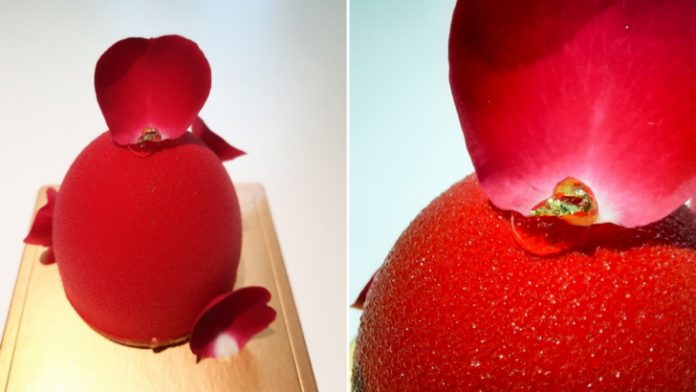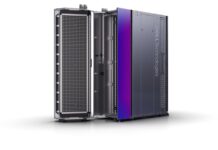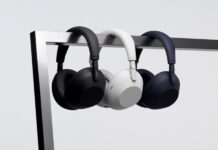When taking a photo, sometimes we find ourselves harnessing our camera’s zoom feature to capture certain special things in as much detail as possible. The unique textures and colours that desserts possess are one such example; when capturing a particularly impressive cake or sweet treat, harnessing our smartphone camera’s zoom comes in handy when looking to record it in all its glory.
The Galaxy A51 and Galaxy A71’s powerful quad-camera features a 5MP Macro camera that, compared to a normal camera lens, can capture a subject and all its intricate detailing at a 30 to 50 mm range. To see this revolutionary close-up technology in action, Samsung Newsroom used the Galaxy A51’s Macro lens to take the best shots of 12 different appetising desserts. What new worlds of detailing will the Macro lens uncover?
Getting Up Close and Personal with Surface Details
One of the benefits of a camera such as the Macro lens on the Galaxy A51 and Galaxy A71 is its ability to capture details that human eyes aren’t capable of perceiving. Not only does the Macro lens record all of an object’s surface detailing, but it is also able to focus on a subject automatically without any need for the user to manually adjust the settings.

The image taken with the Macro camera vividly captures the tiny water droplets on this dessert that has come fresh out of the refrigerator

Resembling a snowy field, the fine rice flour on this dessert comes through vividly in the picture on the right-hand side

The glassy surface of this strawberry mousse cake appears extra iridescent when photographed with the Macro camera
Top Tips: How to Become an Expert Food Photographer
① Be aware of lighting!
To take a good close-up picture of food, you need to be aware of your light source. For general portrait-orientation photography, one is advised to avoid any kind of backlight from behind a subject. But food photography is different because it is about adding three-dimensionality to two-dimensional details. If you can use backlighting well, you can harness light effects to showcase the dynamism of your subject, such as its glittering moisture or its vivid colours.
Bringing Out Every Texture
The different textures of a dessert don’t just make it enjoyable to eat – they make a sweet treat enjoyable to photograph, too. Once you have ascertained the most compelling textural aspects of your dessert when snapping a picture, you can use the Macro lens to bring out these multifaceted details.

Close up, the distinct textures of shaved ice with milk and mango pieces make for a mouth-watering combination

The Macro camera’s shot of solid chocolate melting into warm milk makes for evocative viewing

The sharp contrast of the nuts’ crunchy texture and the mousse cake’s smooth one becomes even more distinct when captured with the Macro camera
Top Tips: How to Become an Expert Food Photographer
② Make your own reflector!
A professional photography studio will use a reflector to direct and change the light composition to take top-quality shots. When you are in a café or at home, a piece of white card, such as a business card, can work as a reflector. Place the card to the side of your smartphone’s camera to amplify the light. You can even substitute this white card with a small piece of A4 paper if that is all you have on hand.
Capturing the Rainbow
The best desserts can be enjoyed with our eyes as well as with our taste buds, so being able to capture every vivid colour detail of your sweet subjects is important. A contrasting background, too, can serve as another way to bring out every dynamic shade of your dessert when using the Macro camera.

With their contrasting textures and appealing colours, these macarons get even tastier when photographed with the Macro camera

The Macro camera makes the most of the dynamic colour contrast between these purple and yellow bread treats

Pastel shades can often use their vividness when captured on camera, but thanks to the Macro camera, these chocolates retain their appeal
Top Tips: How to Become an Expert Food Photographer
③ Celebrate the unique!
Even if you and your friend order exactly the same thing at a café, almost never will you see two dishes come out that are perfectly identical. Garnishes might be placed differently, textures might overlap differently and colours might vary, meaning that each plate is unique. Paying attention to the details particular to your dessert when photographing it is a sure-fire way to capture a shot that will be unlike anyone else’s.
Making the Most of Intricate Layering
Desserts that are layered, be it with flavours of different textures, consistencies, or colours, are as aesthetically pleasing as they are appealing to the palette. To get that perfect cross-section shot of your dessert, it is essential that every detail stands out. The Macro camera is the perfect tool for doing this, even when the layers are fillings and therefore not as immediately obvious.

The smooth harmony of this layered cake is captured perfectly with the Macro camera

The border between this sweet drink’s two layers has something of a sunset effect when captured on the Macro camera

Despite its roughly-textured exterior, the Macro Camera has revealed the colourful charm of the layered colours in this cake
There you have it. There are clearly a lot of tasty surprises in the camera of the Galaxy A51 and A71.
Provided by Samsung Mobile SA




























